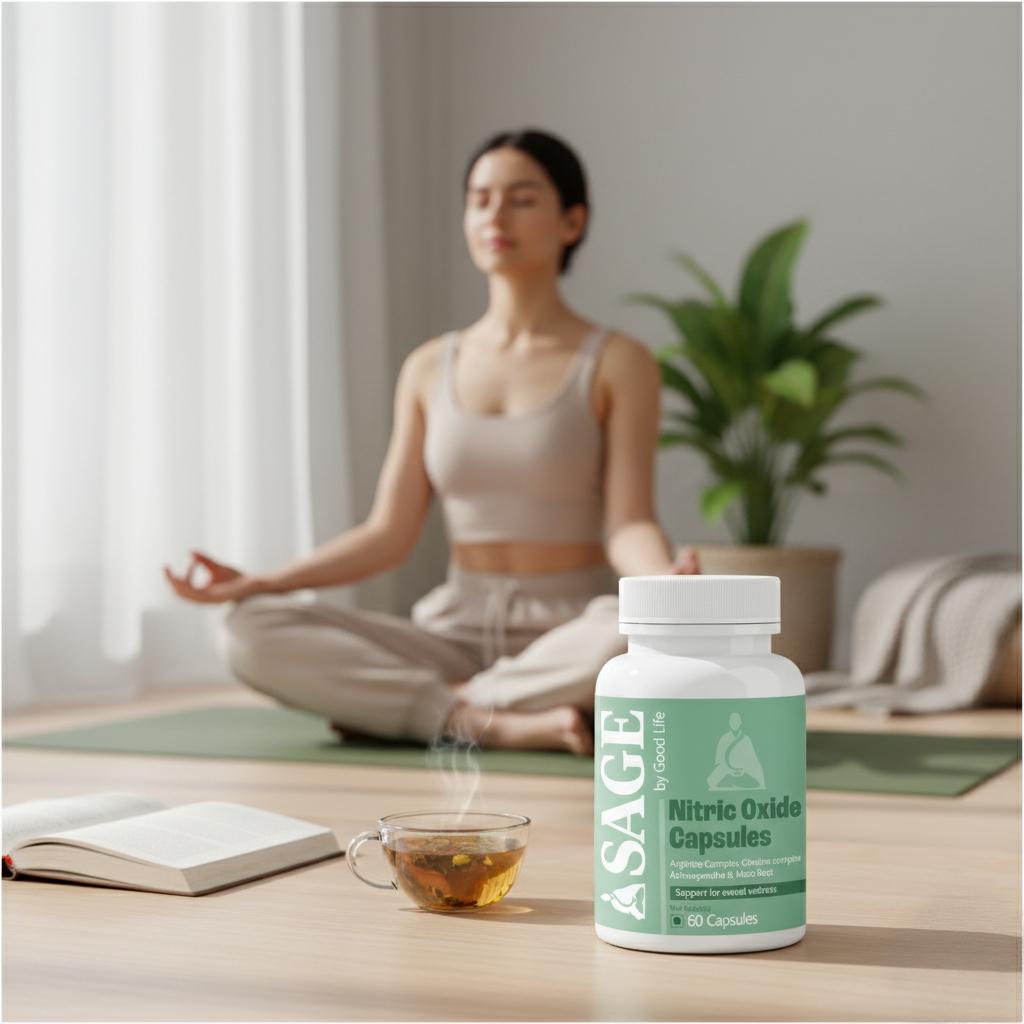
Can Nitric Oxide Help Manage Stress and Recovery?
Share
Introduction
Stress and recovery are critical components of overall health, especially in today’s fast-paced world where physical and psychological demands are heightened. Nitric oxide (NO), a versatile signaling molecule produced naturally in the body, plays essential roles beyond cardiovascular health. Emerging research highlights NO’s ability to influence stress management and enhance recovery. This blog explores how nitric oxide helps regulate stress responses, supports tissue repair, and promotes physical and mental recovery.
Understanding Nitric Oxide’s Biological Functions
Nitric oxide is primarily known for its role as a vasodilator, relaxing blood vessels and improving circulation. However, NO also serves as a neurotransmitter and immunomodulator, influencing multiple physiological systems. It helps mediate cellular signaling involved in inflammation reduction, neurotransmission, and mitochondrial function, all vital processes related to managing stress and accelerating recovery.
The Impact of Stress on the Body
Chronic stress activates the hypothalamic-pituitary-adrenal (HPA) axis, leading to elevated cortisol levels that negatively affect immune function, muscle repair, and cognitive performance. Stress-induced vascular constriction reduces blood flow, impairing oxygen and nutrient delivery essential for healing. These factors hinder recovery and exacerbate fatigue, highlighting the importance of mechanisms that counteract these effects.
Nitric Oxide and Stress Regulation
Nitric oxide influences stress responses by promoting vasodilation, reducing vascular tension, and improving blood flow to critical organs including the brain. Enhanced circulation supports cognitive function and emotional regulation under stress. Additionally, NO interacts with neurotransmitters like serotonin and dopamine, modulating mood and reducing anxiety. This multi-level modulation helps the body and mind better adapt to stressors.
Supporting Inflammation Control and Immune Function
Excessive inflammation is a hallmark of chronic stress that delays tissue repair and recovery. Nitric oxide exhibits anti-inflammatory properties by modulating immune cell activity and reducing oxidative stress. This regulation accelerates healing processes and supports immune system balance. Adequate NO levels help mitigate chronic stress-induced inflammation, facilitating more efficient recovery from physical exertion or injury.
Enhancing Physical Recovery
Recovery from exercise, injury, or illness depends heavily on effective blood flow and cellular repair. By improving nitric oxide availability, the body enhances oxygen and nutrient delivery to muscles and tissues. This accelerated transport promotes removal of metabolic waste, reduces soreness, and facilitates faster regeneration. Athletes often supplement with NO precursors to capitalize on these recovery-enhancing benefits.
Mental Recovery and Cognitive Restoration
Stress and fatigue impair cognitive faculties such as memory, attention, and decision-making. Nitric oxide supports brain function by increasing cerebral blood flow, enhancing oxygen supply, and protecting neurons from oxidative damage. This support aids mental recovery, reduces brain fog, and improves overall cognitive resilience, crucial for managing daily stress and maintaining productivity.
Natural Ways to Boost Nitric Oxide Production
Diet, exercise, and lifestyle choices influence endogenous NO production. Consuming nitrate-rich foods like beets, spinach, and arugula enhances NO synthesis. Regular moderate exercise promotes endothelial health and NO generation. Additionally, supplementation with L-arginine and L-citrulline provides direct precursors to NO, optimizing its levels for improved stress management and recovery.
Nitric Oxide Supplementation: Considerations and Benefits
Using nitric oxide supplements can be a practical way to support these biological pathways. When taken appropriately, NO supplements help reduce stress-induced vascular constriction, speed tissue repair, and enhance cognitive function. It is vital to follow dosage recommendations and consult healthcare professionals when incorporating supplements, particularly for those with underlying health conditions or on medications.
Integration with Holistic Recovery Practices
Combining NO enhancement with other recovery practices such as adequate sleep, mindfulness, hydration, and balanced nutrition yields the best results. Nitric oxide works synergistically with these factors to create an optimal environment for physical and mental restoration, making it a valuable part of a comprehensive wellness strategy.
Potential Side Effects and Safety
Nitric oxide supplements are generally well tolerated but may cause mild side effects including headaches, dizziness, or gastrointestinal upset if taken excessively. Individuals with low blood pressure or certain cardiovascular conditions should use caution. Ensuring product quality and adhering to recommended doses enhances safety during use for stress and recovery support.
Conclusion
Nitric oxide plays a crucial role in managing stress and promoting recovery through vascular, neurological, and immunological mechanisms. Boosting NO availability supports improved blood flow, reduced inflammation, enhanced cognitive function, and faster tissue repair. Incorporating nitric oxide support naturally or through supplementation, can help individuals better cope with stress and achieve effective recovery, contributing to improved overall health and performance.





